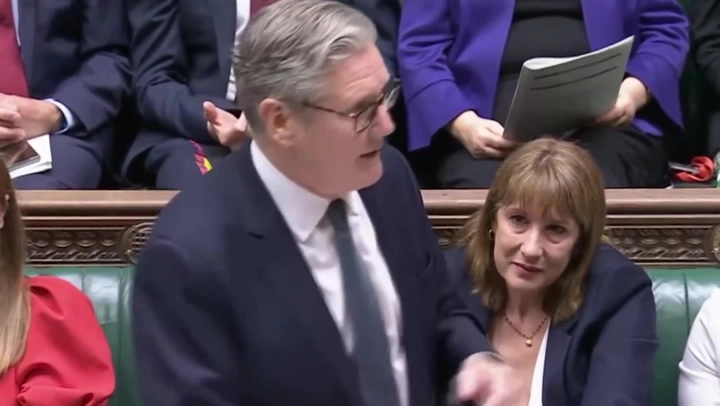UK (Parliament Politics Magazine) – OBR warns UK debt could hit 270% of GDP by 2070s as Keir Starmer’s welfare U-turns leave Reeves scrambling to fix a deepening black hole in public finances.
As reported by The Independent, the Office for Budget Responsibility has warned that recent government measures to stabilise the economy have largely fallen short.
What did the OBR say about the UK’s fiscal position?
According to the OBR, the government’s reliance on welfare and fuel payment reversals under Keir Starmer is fuelling the ongoing rise in government debt.
The fiscal watchdog warned that Britain’s debt could surpass 270% of GDP by the early 2070s, marking a dramatic rise in long-term fiscal pressure.
The OBR said,
“The UK’s fiscal position is increasingly vulnerable by both historical and international standards, limiting the scope to respond to future economic and other shocks.”
The watchdog stated,
“While most advanced economies have seen their deficits and debt increase since the pandemic, the UK stands out for running persistent large deficits and a relatively high debt stock in the face of rising interest rates, slowing growth, an ageing population and rising geopolitical and trade tensions.”
According to the OBR, Chancellor Rachel Reeves has limited space to ease borrowing rules, as tackling the UK’s rising debt will become more challenging.
The report stated,
“Planned tax rises have been reversed and, more significantly, planned spending reductions have been abandoned. The more persistent fiscal deficits and ratcheting up of debt that resulted have been accommodated by successive loosening of the fiscal rules.”
The OBR raised concerns for the Chancellor, predicting a sharp increase in debt interest payments over the coming years. This could leave Reeves facing a £22bn gap, as fewer people benefit from final salary pensions.
The watchdog added,
“Higher interest rates would be needed to entice more price-elastic buyers than pension funds, such as overseas investors, into the UK gilt market. With debt at 100pc of GDP, this could eventually increase debt interest spending by £22bn [in today’s money].”
The OBR report said state pension costs have steadily climbed over 80 years. They rose from 2% of GDP to 5% (£138bn) and could reach 7.7% by the 2070s.
According to the fiscal institution, longer life spans and the triple lock are driving up state pension costs year after year.
It added,
“Due to inflation and earnings volatility over its first two decades in operation, the triple lock has cost around three times more than initial expectations.”
The watchdog said the non-earnings part of the triple lock has been triggered in eight of the past 13 years due to volatile inflation.
It stated,
“As a result, and despite the suspension of the triple lock for one year during the pandemic, the triple lock is expected to have cost £15.5bn annually by 2029-30, around three times higher than initial expectations.”
The OBR warned that climate change poses a serious fiscal risk, driven by rising green transition costs and climate-related damage. The shift to electric vehicles is also eroding fuel tax income.
What is driving the UK’s highest debt level since the 1960s?
Under growing pressure from his MPs, Sir Keir Starmer last week scrapped plans to cut £5bn from the welfare budget. He had already U-turned on ending winter fuel payments for millions of pensioners.
The impact of recent U-turns and cuts has caused UK debt to reach its highest point since the 1960s, and the OBR warns it could climb further in the near term.
What financial gaps must Reeves fill after Keir Starmer’s U-turns?
The Chancellor now faces the task of finding £5bn to cover the shortfall caused by Mr Starmer’s reversal on welfare reform.
She also needs over £1bn to pay for pensioners’ winter heating support after another U-turn.
What did the Treasury say about the OBR’s warning on the economy?
A Treasury spokesperson stated,
“We recognise the longstanding economic realities the OBR sets out in its report. This is why we are committed to ensuring stability in the economy through our non-negotiable fiscal rules, which have allowed us to invest in the UK to drive a decade of renewal and put more money in people’s pockets.”
Responsibilities of OBR
- Economic forecasts: OBR gives 5-year forecasts for the economy and public finances twice a year.
- Fiscal target checks: It checks if the government is on track to meet debt and spending goals.
- Policy costing review: OBR checks tax and welfare policy costs and rates their uncertainty.
- Long-term risk reports: It studies future risks to public debt and finances in regular reports.


